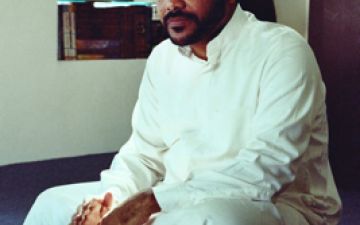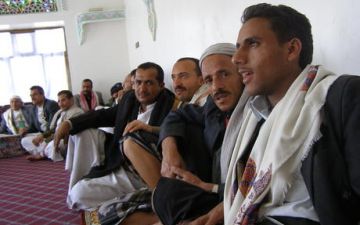The poorest nation in the Arab world struggles with high population growth, 40% unemployment and a persistent flow of refugees from Somalia. In the next decade, its 22 million citizens will compete for increasingly scarce water supplies, as aquifers are drilled, pumped and drained unsustainably.
This is a hybrid regime where modern Western-style institutions are grafted onto parallel, informal patronage networks. President Saleh's divide-and-rule strategy enables him to govern by proxy through tribal sheikhs, but dwindling oil reserves will severely limit the future capacity of the state. From the northern mountains, guerrilla fighters have mounted a four-year rebellion, bringing their recent incursions to the suburbs of the capital.
In July, the government declared an end to the war but thousands of displaced residents have yet to return home. In the south, complaints of discrimination revive the fault-lines underpinning the 1990 unification between the Yemen Arab Republic (North Yemen) and the People's Democratic Republic of Yemen (South Yemen). And Yemen's regime has become a target of terrorism, from a new generation of al-Qaeda inspired Salafi jihadis who oppose President Saleh's co-operation with the United States. President Saleh has now survived three decades at the top.
He will be 70 at the time of the next election - in 2013 - when his country is expected to attempt a peaceful transition of power. Ginny Hill examines the growing social and political pressures in this strategic Arabian Peninsula state that borders Saudi Arabia and controls the Bab al-Mandab strait, one of the busiest shipping lanes in the world.



